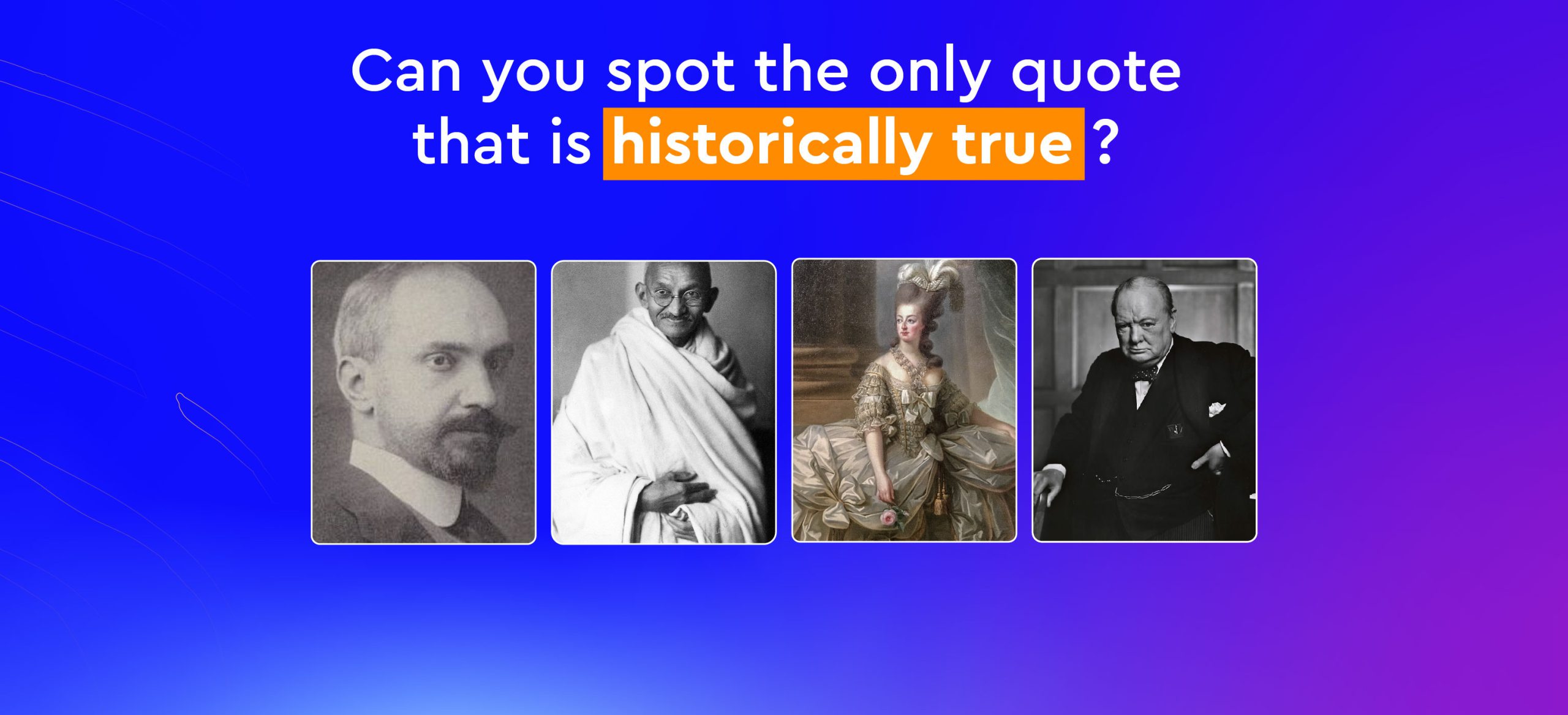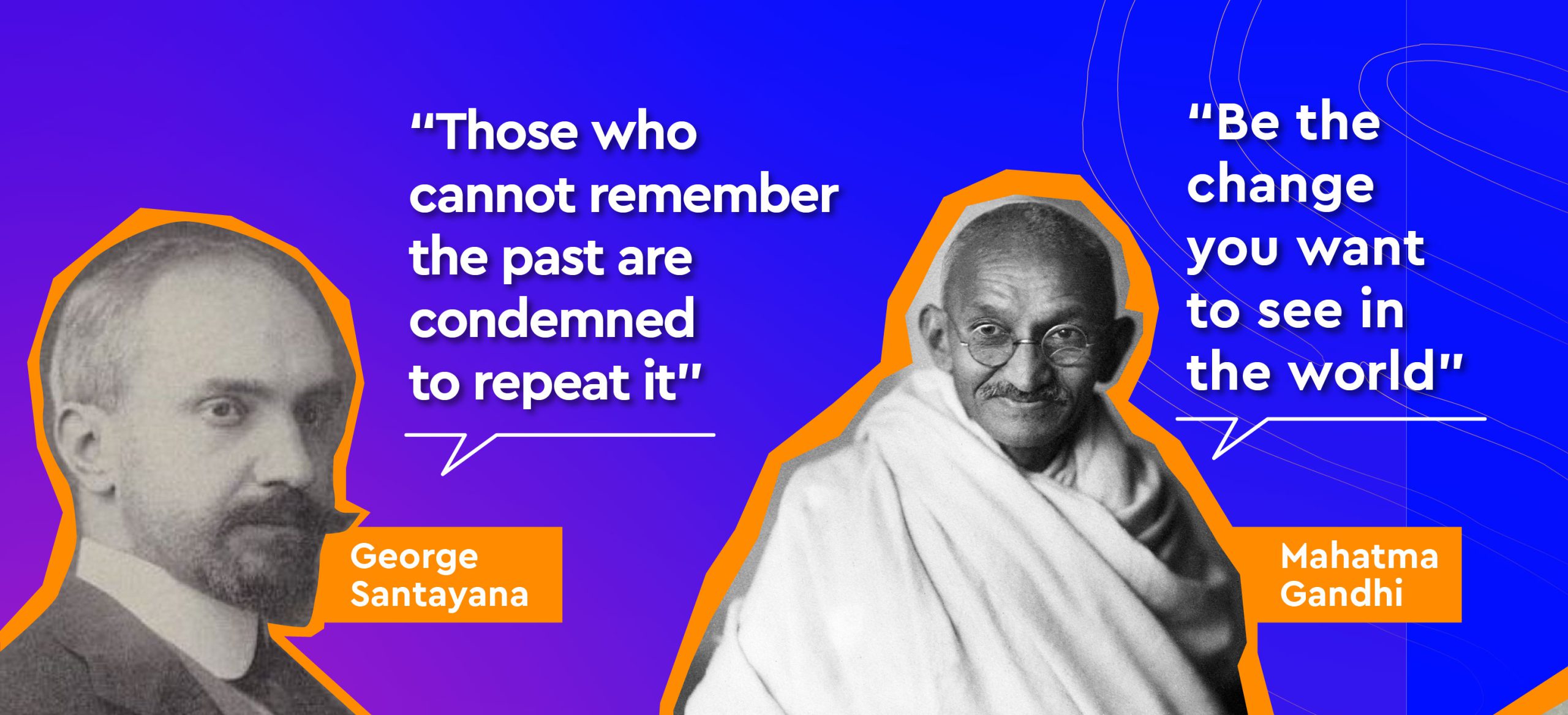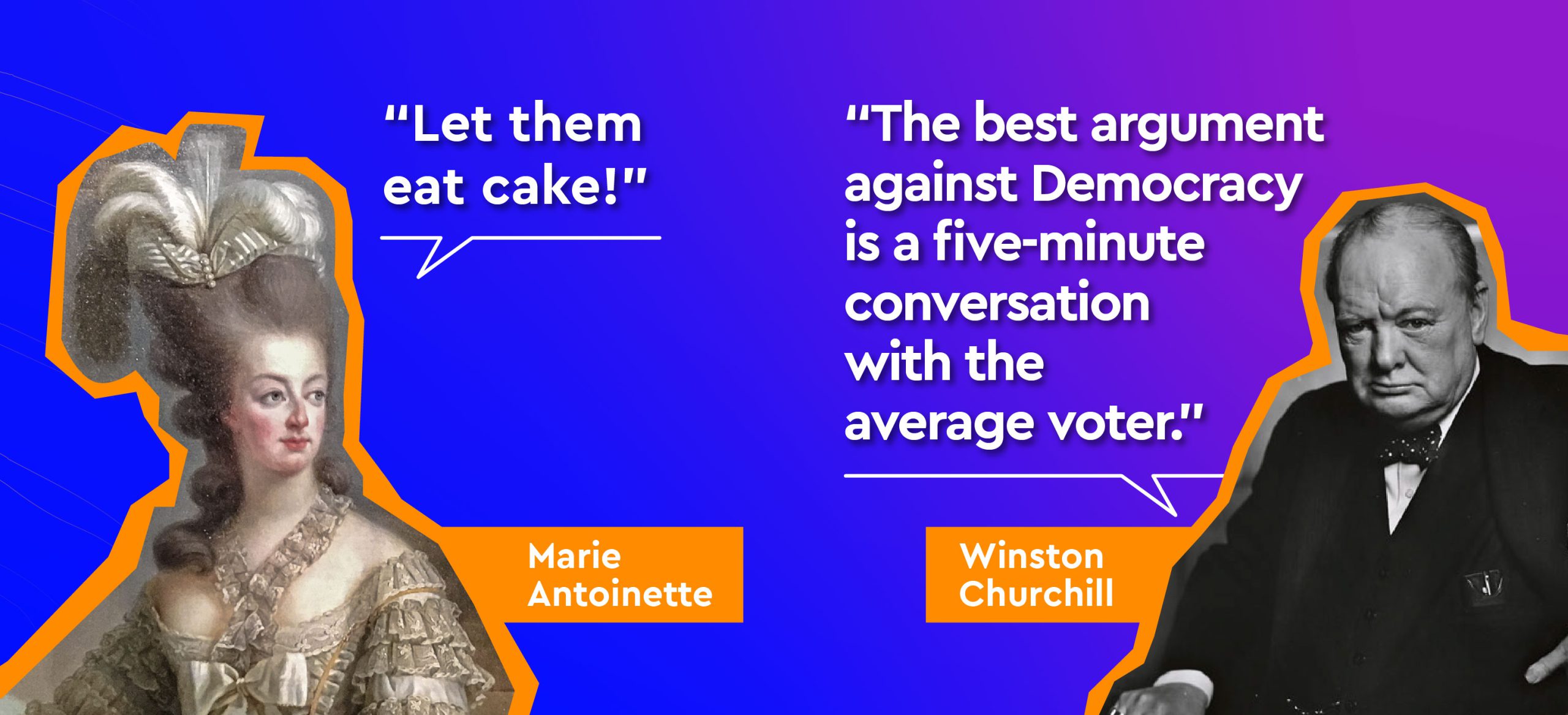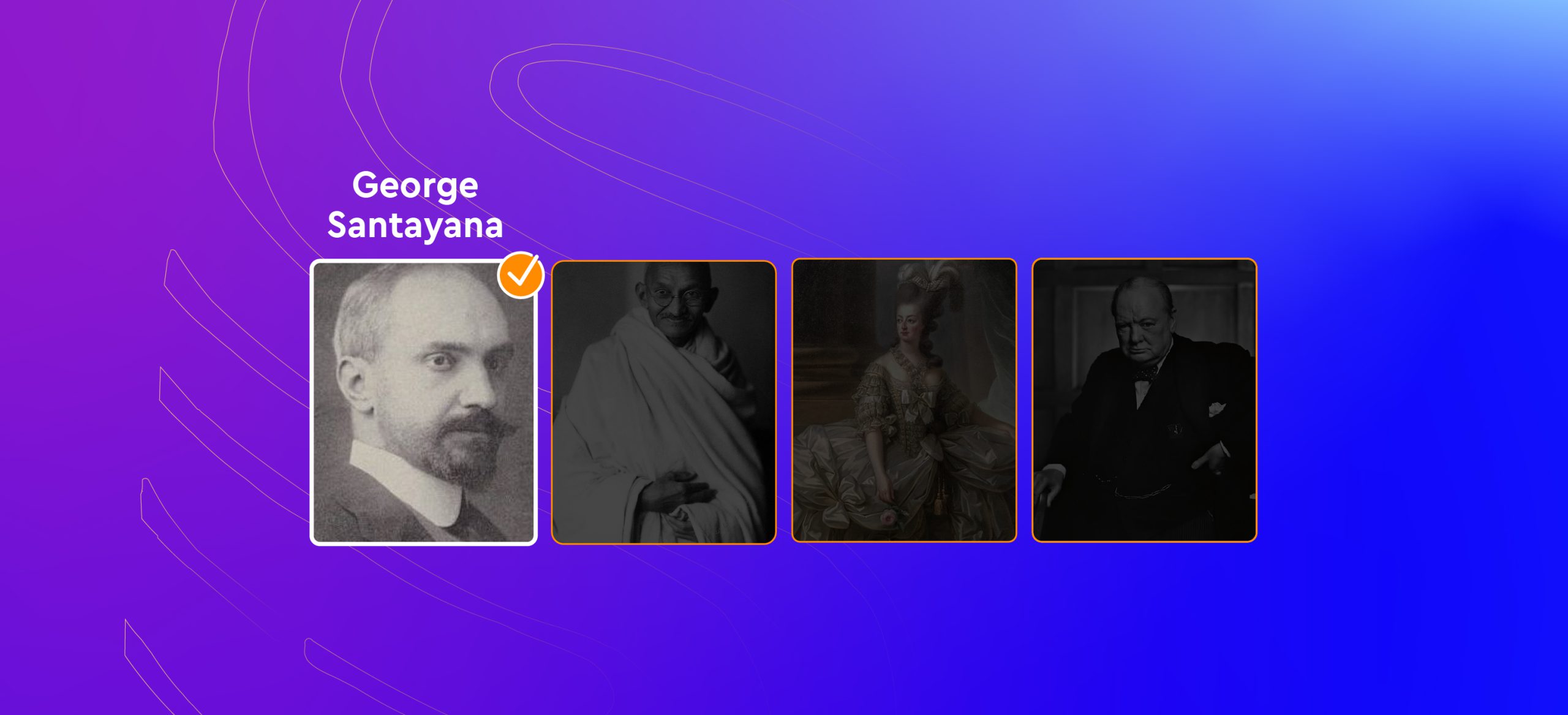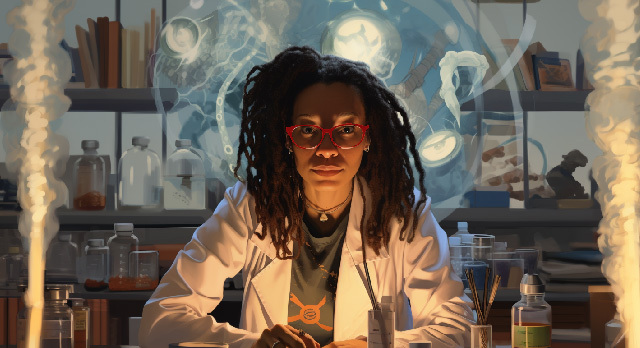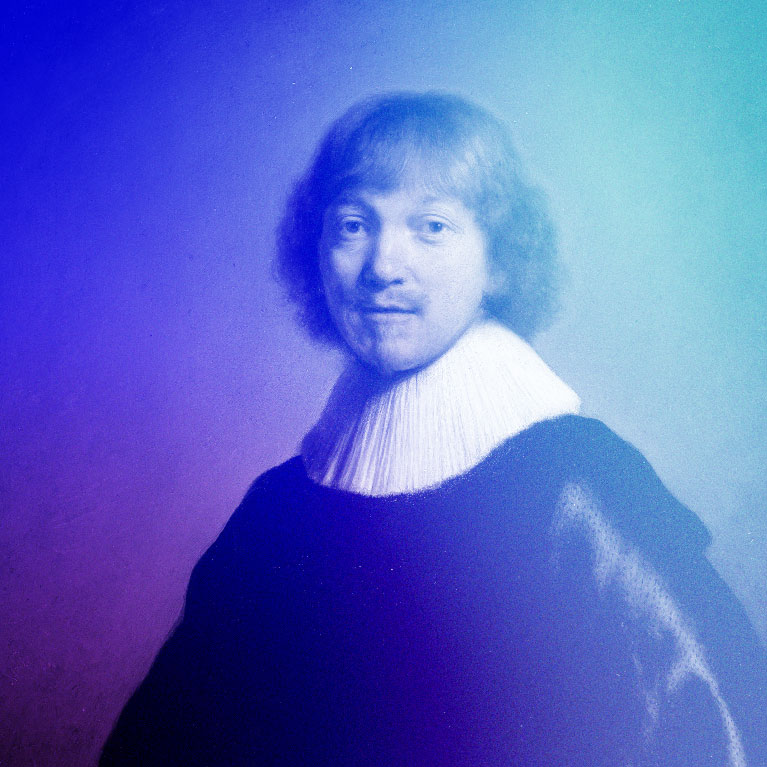
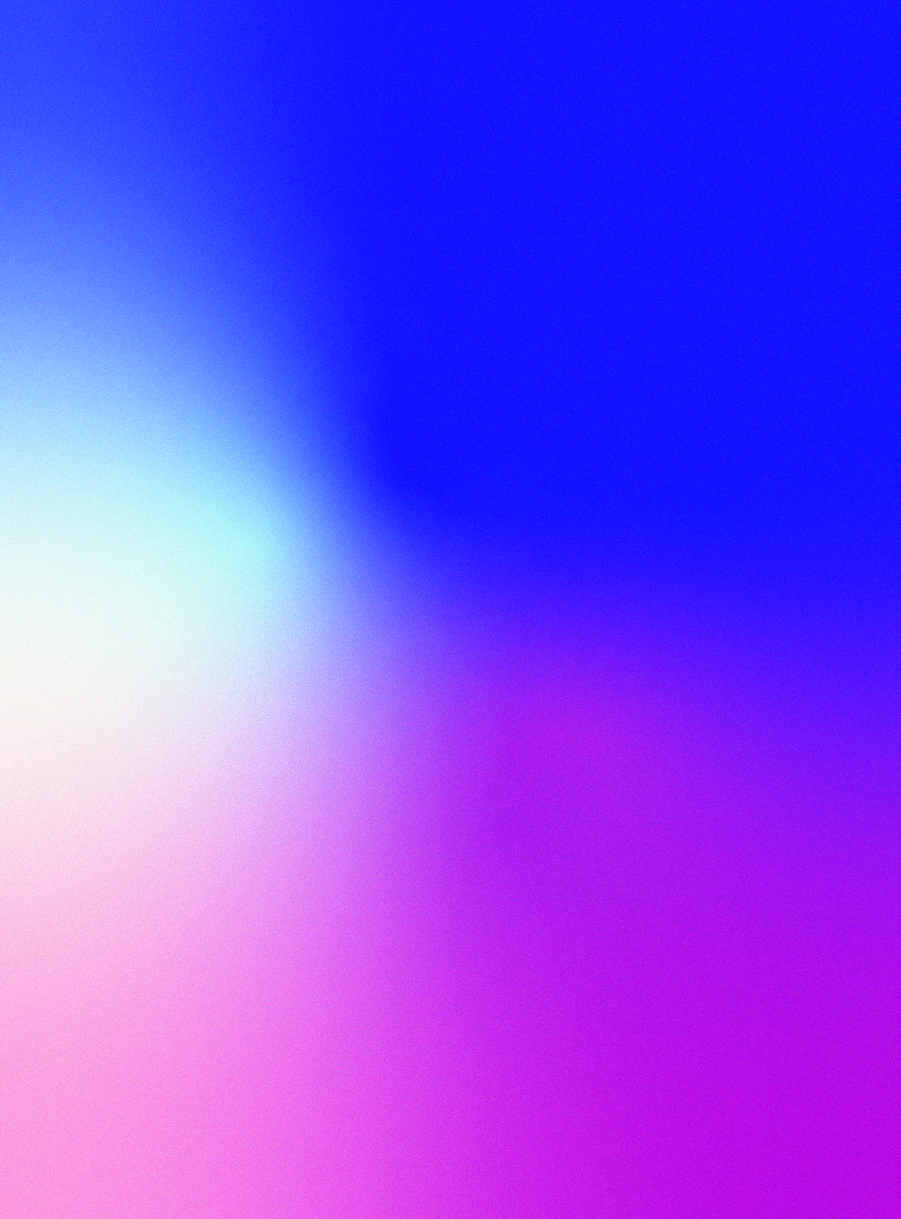
Did Gandhi Really Say That?
Did Gandhi Really Say That?
People have been twisting each other’s words for all of human history, but quotation marks only came into being in the 16th century
Have you ever encountered a famous quote that proved to be false? Well, it turns out there’s nothing new about it. This is how Ambrose Bierce, author of the original Devil’s Dictionary, defined the word “quotation”: “The act of repeating erroneously the words of another”.
People have been twisting each other’s words for all of human history, but quotation marks as we know them only came into being in the 16th century! Before the age of print, scribes would underline quoted words or write them in a different colored ink.
During the 18th century, the practice of providing citations for quotations became common in scholarly writing. This allowed readers to look them up and verify them. Nowadays, when anybody can publish almost any content they wish, it’s harder to tell accurate from fake or manipulated information. When reading or sharing information online, check to see whether the authors provide citations, and don’t automatically trust every website you come across. It’s always good practice to check your sources. And you can quote us on that!
So where did the false quotes in this Knowledge Nugget come from? Well, in 1913, Gandhi wrote this: “We but mirror the world. All the tendencies present in the outer world are to be found in the world of our body. If we could change ourselves, the tendencies in the world would also change”. The phrase “Be the change you want to see in the world” was actually written by Arleen Lorrance in a 1974 self-help book. Maybe because it was similar to Gandhi’s statement, it had been misattributed to him since the 1980s.
Marie Antoinette’s “Cake” phrase was first coined by Jean-Jacques Rousseau, who attributed it to “a great princess”, but not to Marie Antoinette, who was still a child when Rousseau wrote it. The phrase was first linked to her 50 years after the French Revolution and it was actually a refutation, suggesting that her enemies had deliberately misattributed the quote to her. But there’s no historical record of even that happening. Weird!
As for Churchill’s quote, it was thoroughly debunked in “Churchill by Himself”, an annotated collection of his sayings: “Commonly quoted, but without attribution. Though he sometimes despaired of democracy’s slowness to act for its own preservation, Churchill had a much more positive attitude towards the average voter”.
Group Activity
- Divide the group into several teams.
- Pick one of the questions from the list below and let each team discuss it and then present their thoughts to the group; Alternatively, assign each team with a different question, and when they present it to the group ask the remaining teams for their thoughts as well.
- Ask each team or individual to come up with a fake historical quote that sounds real. Ask them: what makes a fake quote sound real? What do well known historical quotes have in common?
- For more quote-related activities, visit Quote Quest.
Questions
- Deepfake technology allows anyone to put words into famous people’s mouths. What do you think could go wrong?
To delve deeper, give each team an article from the list below (you can assign all of the articles or choose between them). Ask each team to summarize the article’s main argument(s) and present it to the group. Things to note and address: where was the article published (a magazine? A news website? An academic journal?) Who is the author (a columnist? An academic?). Each team can also turn the article’s core argument into a slogan (“AI deletes the I”, “The solution is evolution”, etc.). Ask each team to present their thoughts on the question to the group.- Article 1: An optimistic view of deepfakes. TechCrunch, July 2019
- Article 2: Positive Use Cases of Synthetic Media (aka Deepfakes). Medium, August 2020
- Article 3: You thought fake news was bad? Deep fakes are where truth goes to die. The Guardian, November 2018
- Article 4: Deepfake: The Good, The Bad and the Ugly. Medium, May 2019
- How can we fight fake news and deepfake videos, as individuals and as a society?
- Does a worthy cause (political, social, personal etc.) justify spreading fake or manipulated information?
